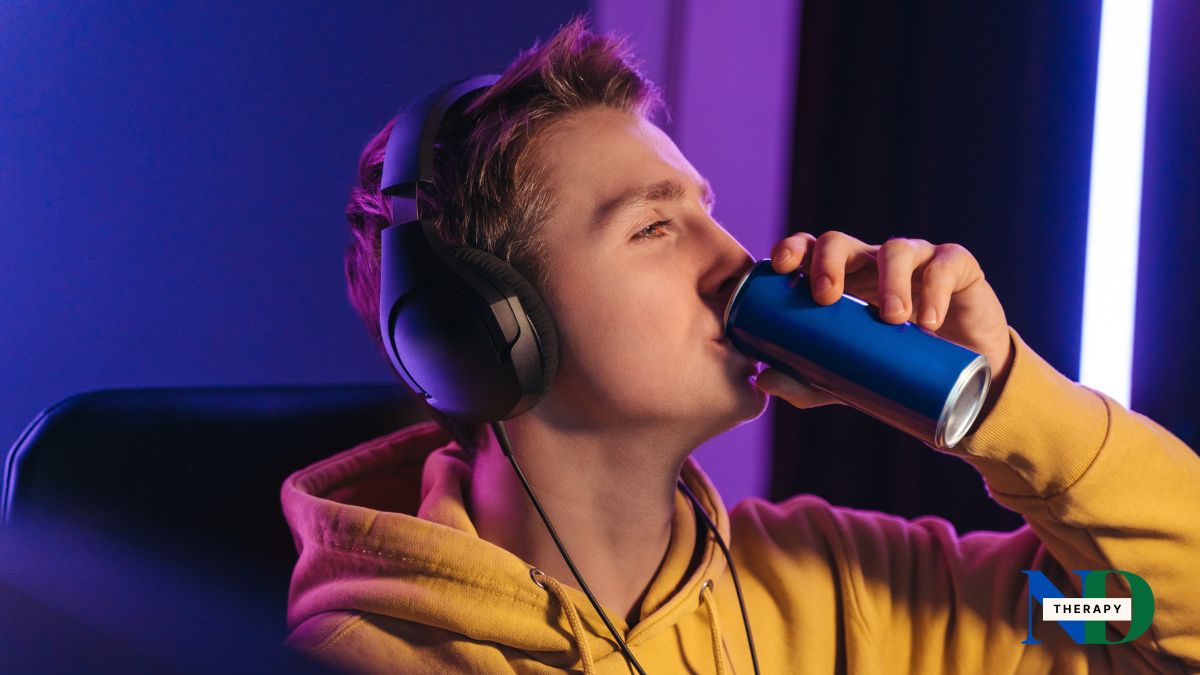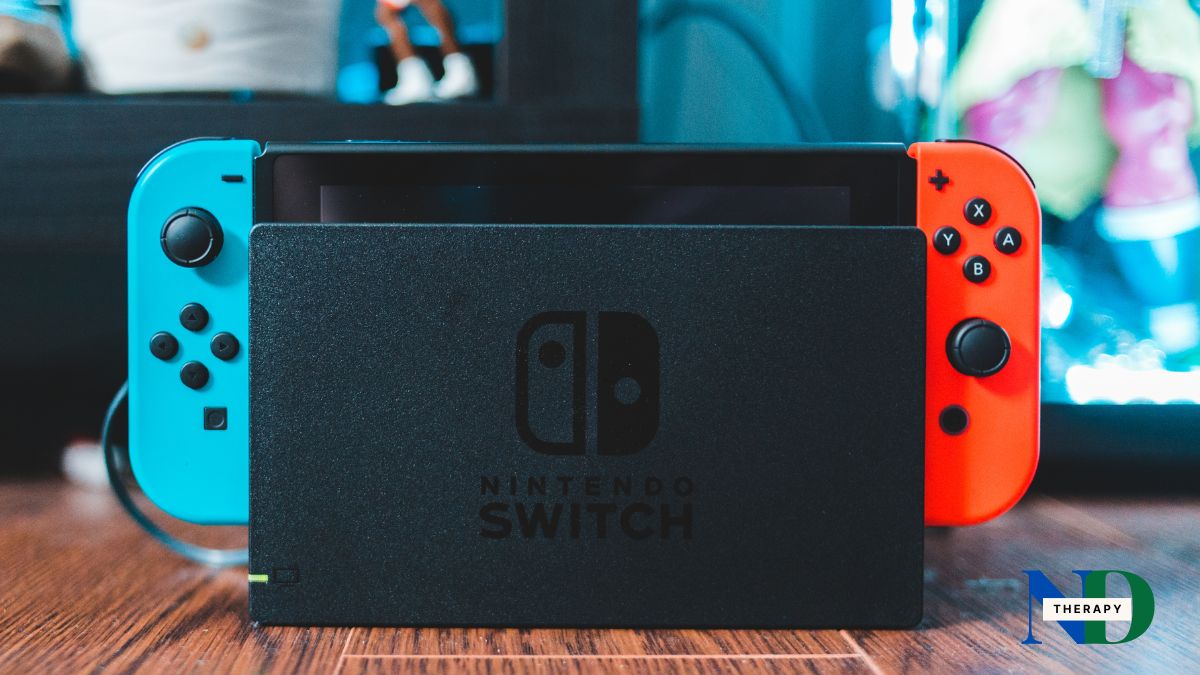
Energy drinks designed for gamers have become a booming industry, with brands marketing themselves as the perfect solution for focus, reaction time, and marathon gaming sessions. While these products appeal to millions worldwide, their long-term effects on health deserve closer scrutiny.
The Top 5 Brands Dominating the Market
1. G Fuel (~38% market share)
G Fuel leads the pack, thanks to its wide range of powdered energy formulas, hydration lines, and ready-to-drink cans. Its aggressive influencer partnerships and esports sponsorships make it the most visible player in this space (BrandsOwnedBy).
2. GamerSupps (~18% market share)
GamerSupps (GG) has grown rapidly, touting keto-friendly, sugar-free formulations and creator-backed marketing campaigns. Known for small, inexpensive tubs and occasional meme-based branding, it’s a favorite among younger gamers (BrandsOwnedBy).
3. Sneak Energy (~15% market share)
This UK-based brand focuses on clean, vegan-friendly ingredients and bold branding. It has developed a loyal community across Europe and North America (BrandsOwnedBy).
4. Rogue Energy (~12% market share)
Rogue Energy markets itself as affordable and performance-oriented, appealing to competitive gamers seeking sustained energy without sugar crashes (BrandsOwnedBy).
5. ADVANCED.gg (~6% market share)
A smaller but notable player, ADVANCED.gg targets esports professionals and positions itself as a nootropic-focused energy solution (BrandsOwnedBy).
What Makes These Drinks Popular
Gaming energy drinks are marketed as a cleaner, more targeted alternative to mainstream options like Red Bull or Monster. Most come in powdered form, allowing users to control their dosage and avoid sugar-laden canned drinks. They are often:
- Sugar-Free: Positioned as healthier than soda or traditional energy drinks.
- Customizable: Powders let users mix to taste and strength.
- Community-Driven: Aggressive influencer partnerships create loyalty and hype.
- Flavor Variety: Dozens of rotating and limited-edition flavors keep engagement high.
These factors combine to create a sense of culture and exclusivity around each brand—an attractive proposition for younger consumers and esports fans.
Health Effects of Key Ingredients
Most gaming energy supplements share a similar core profile of ingredients, which can have both short- and long-term health implications.
Caffeine (100–300 mg per serving)
- Short-Term: Increases alertness, improves reaction time.
- Risks: High intake can cause jitteriness, anxiety, sleep disturbances, heart palpitations, arrhythmias, and in extreme cases, seizures or sudden cardiac events.
- Documented Deaths: There have been several documented fatalities linked to energy drink overconsumption, particularly among adolescents and young adults. Cases include deaths from cardiac arrest after consuming multiple energy drinks or combining them with other stimulants or alcohol (NIH).
- Maximum Daily Dosage: For most healthy adults, caffeine intake should not exceed 400 mg per day. For children and adolescents, it should be significantly lower or avoided due to increased cardiovascular and neurological sensitivity (Mayo Clinic).
Artificial Sweeteners (Sucralose, Acesulfame-K) & Sugar Alcohols (Erythritol)
- Short-Term: Reduce sugar/calorie intake.
- Risks: Emerging research suggests erythritol may increase platelet reactivity and be associated with cardiovascular events in susceptible individuals (NIH). Overconsumption can also cause gastrointestinal discomfort, bloating, and laxative effects.
- Products Containing Erythritol:
- GamerSupps (GG): Caffeine-free tubs (e.g., Lemonade, GOOD, Copium)
- G Fuel: Some sugar-free powders (check specific flavor labels)
- Sneak Energy: Most sugar-free powders contain erythritol
- Rogue Energy: Selected sugar-free flavors
- ADVANCED.gg: Check product labels for sugar-free options
Nootropics (L-Theanine, Choline, Bacopa)
- Benefits: May promote focus and calmness when combined with caffeine.
- Risks: Limited research on long-term safety at the dosages found in these supplements.
B-Vitamins & Taurine
- Benefits: Support energy metabolism.
- Risks: Typically safe in moderate doses, but excess B6 may cause neuropathy over time (NIH ODS).
Other Additives (Colorants, Flavorings)
- Risks: Artificial colors have been linked to hyperactivity in sensitive individuals; more research is needed on cumulative effects.
Caffeine Comparison Table
| Product / Serving | Approx. Caffeine Content (mg) | Notes |
|---|---|---|
| G Fuel Powder (1 scoop) | 150 | Standard gamer-serving; varies by flavor |
| GamerSupps (GG) Powder (1 scoop) | 200 | Some caffeine-free options available |
| Sneak Energy Powder (1 scoop) | 150 | Sugar-free, designed for alertness |
| Rogue Energy Powder (1 scoop) | 175 | Slightly higher caffeine content |
| ADVANCED.gg (1 scoop) | 100 | Lower-dose, nootropic-focused |
| 8 oz Coffee | 95 | Standard drip coffee |
| 12 oz Cola | 35 | Typical soda serving |
This table helps contextualize the caffeine load of gaming energy drinks relative to common beverages.
Hospitalizations and Adverse Events
While there have been no widely reported deaths directly linked to these gamer-specific brands in the past year, case reports of emergency room visits for heart palpitations, anxiety attacks, and dehydration linked to energy drinks still surface regularly. Extreme caffeine intake, especially when multiple servings are consumed rapidly or combined with other stimulants, has been associated with severe cardiovascular events and occasional fatalities (NIH).
The Bigger Picture
Energy drinks for gamers are cleverly marketed, community-driven products that offer a quick edge in alertness and focus. But their heavy reliance on stimulants, sweeteners, and sugar alcohols like erythritol means regular users should proceed with caution. Long-term health effects remain under-researched, and the potential for overconsumption—especially among teens and young adults—is high.
For those who choose to use these products, moderation and awareness are key. Spacing out servings, limiting total daily caffeine intake (generally <400 mg for most healthy adults), monitoring erythritol intake, and maintaining proper hydration can help reduce risks.
References
- BrandsOwnedBy – Who Owns GamerSupps
- Mayo Clinic – Caffeine: How much is too much?
- NIH – Artificial Sweeteners and Health
- NIH ODS – Vitamin B6 Fact Sheet
- NIH – Energy Drinks and Health Risks
- The Impact of Digital Brainwashing on Children Today - March 3, 2026
- TikTok Use Linked to Social Anxiety and Memory Lapses - March 2, 2026
- Autism and Dental Care: Practical Strategies for Parents - March 2, 2026







